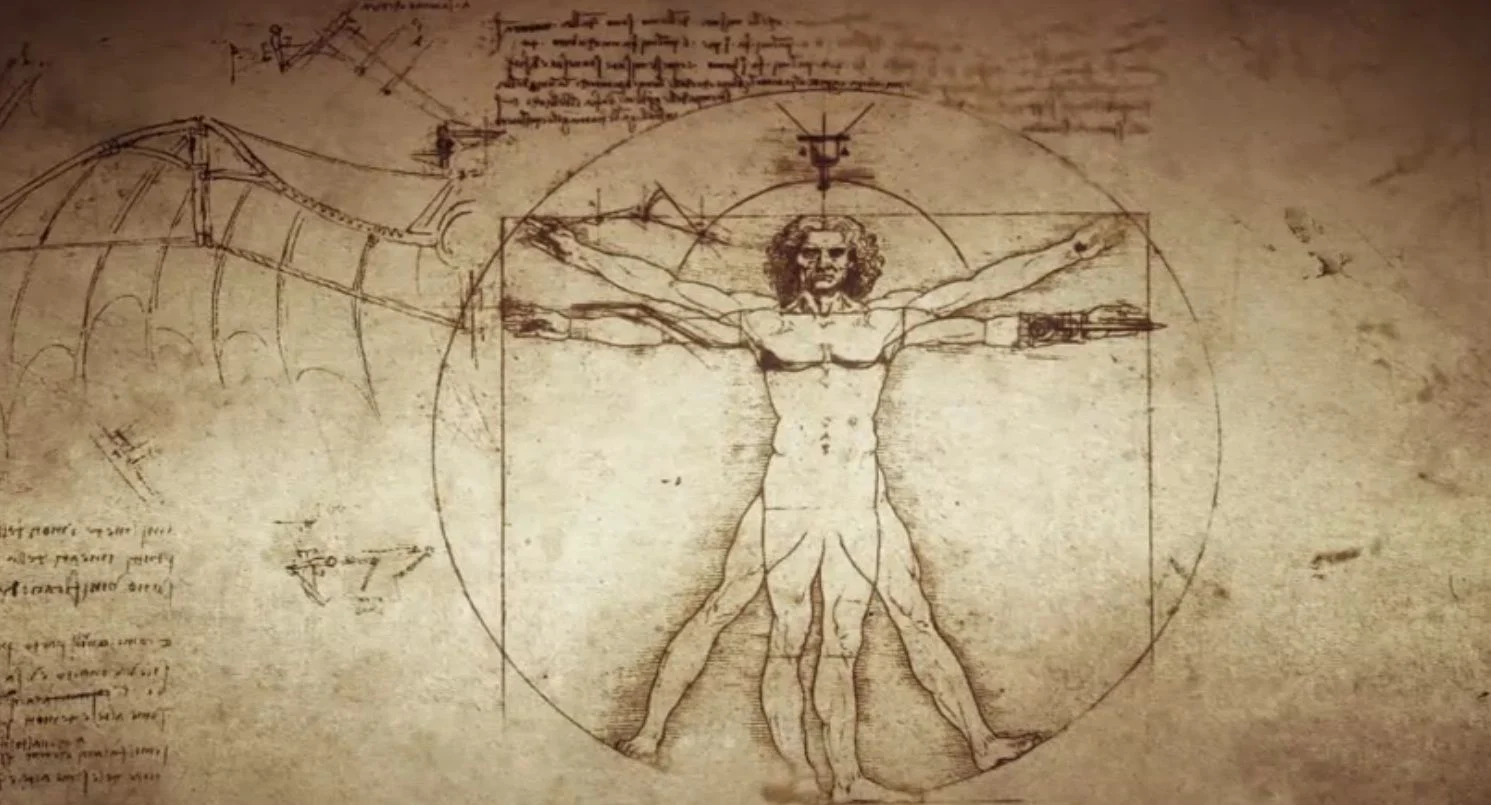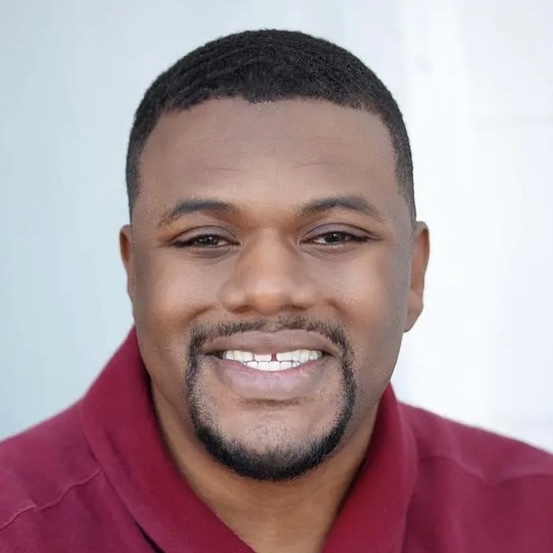Episode Transcript
[00:00:00] Ladies and gentlemen, what do you know about polymaths?
[00:00:06] It's a word that we don't typically use at all these days, but they're actually in many places that we're looking to for inspiration, innovation and change. But do you know that the more polymaths that are in a particular sector of influence, you are actually observing and witnessing a pivot in wisdom, intellect and culture?
[00:00:34] Let's talk about it here in the first episode of Shifts and Ladders.
[00:01:02] Ladies and gentlemen, welcome to shifts and ladders with Ryan Robinson. This is definitely a bit of a shift from our typical life refresh podcast. Again, we'll still keep those episodes in the feed. So if you're willing and wanting to really get your life refreshed, you can still find those episodes in the listing of previous pods. But I'm excited to talk about shifts and ladders because believe it or not, I'm actually a person who studies and observes culture. And I think that it is so important to help individuals identify and be able to prepare when a shift happens and the opportunities to elevate when those shifts happen.
[00:02:00] It is something I've been passionate about. I have a talked about this in many episodes prior to this, but I have a music background and I haven't expounded upon that. And then we'll get into the content for today. But I have a music, I have, I should say, extensive experience in a area of study called ethnomusicology, just what it says ethno, meaning diverse or ethnic, depending on ethnic group musicology. So music that derives from particular ethnic group. And one of the things about this discipline is that you get to take a cultural lens to music. And what provides, what this discipline provides is a glimpse of what shifts happen when sound changes. Okay, so if we think about the sound in the seventies with, you know, the cultural things that were going on with Vietnam, LSD, freelove, all of those movements that were taking place during that time.
[00:03:12] And then you go into the nineties and the sound that changed then. So what you find is there are shifts that are happening. And based on the sound of a culture, ethnomusicology can actually help you determine what are those cultural implications that made the sound shift.
[00:03:33] And I think it's so important for us and actually tells a story, really, as to how culture moved and changed over time. Whether it was technology, the socioeconomic status of individuals changing, a broader world situation that's taking place, like a recession or whatever it could be taking place, there is some kind of substance that leaks its way into the community and in many cases, in this case, music. So in this episode, I want to help individuals understand that you have the ability to be what we call a polymath. Okay? Now, this word has been used in small spaces. You don't hear it much these days, but there are many famous ones in the 21st century. So give. Let me give you the definition of polymath, and then we can get into, um, some examples of those individuals. Polymath. Poly being many math learner learning. So a person who is an expert or learner of many things, okay? Some famous polymath that you may know, Leonardo da Vinci is considered a polymath. He was an artist who painted the last Supper. He also created airplanes or the mechanisms for air travel back then, the renaissance age. He also dissected, I think about, I want to say maybe like 80. I would say 80 is probably 70.
[00:05:23] Some did some. Some like 70 bodies or something like that to learn about the human body. So you have the great. The grid where you see the man who is kind of have his arms spread out and his legs spread out, and he gets different dimensions of this individual's body.
[00:05:40] This was based upon Leonardo da Vinci's ability to dissect these. These circumstances and individuals and people during the time.
[00:05:53] Some other ones that you can think about.
[00:05:57] Benjamin Franklin. Benjamin Franklin was a statesman, he was an inventor.
[00:06:04] He was also a quite welcome person. In France.
[00:06:09] If you haven't watched the Apple TV series called Franklin, I highly suggest you do it with Michael Douglas. Playing Benjamin Franklin. You get to understand many of the shenanigans and the opportunities that he indulged in while he was in France, while the revolutionary war was taking place. But nonetheless, he was considered one of the many polymaths because he was just so gifted in many areas of his life.
[00:06:42] There's other ones, like some women, like Maya Angelou was considered a polymath. She was a poet, she was a dancer, she wrote poems and all those things. She is considered one of a polymath. Another polymath would be George Washington Carver, who had multiple uses of the. Of the peanut and also was an educator and did a multiplicity of different things as well. So why is it important for us to acknowledge polymaths? Because what's happening, what has happened in culture is that we have been conditioned to really focus on one thing, and there's nothing wrong with focusing on one thing, because you want to do something well, right? And many times you say, you may hear this phrase, it's, gosh, it's jack of all trades, master of none.
[00:07:47] You may hear that often.
[00:07:50] And those are not quotes that are famous or actually famous to a polymath. You don't see them because they focus in multiple areas of their expertise.
[00:08:02] Why is it important? Let me get back to that.
[00:08:06] The individuals that I spoke, and I'll actually provide some links in this particular episode about other polymaths that were famous during this time, like Tesla. Not the car, but the individual who argued for direct and alternative current with.
[00:08:30] With.
[00:08:32] Ooh, it's not Isaac Newton. It is Thomas Jeff, not Tom. Yeah, Thomas.
[00:08:39] Ooh, I cannot. Thomas Edison.
[00:08:43] Thomas Jefferson. Thomas Edison.
[00:08:47] And essentially one.
[00:08:50] Those are individuals, but I'll put a list in here. But what's important about them is that they exemplify major pivots when it came to cultural's ability to embrace new technology. Okay. Leonardo da Vinci was famous during the Renaissance time, which came after the dark ages. And what cultivated the Renaissance? The printing press by Gutenberg. Therefore, now that all the information is being disseminated in the form of books, you now see individuals being enlightened, which was what the Renaissance age cultivated, this level of enlightenment. So you see people who are artists, who are also scientists, who are also speakers, poets, whatever the case is, they are now being able to express themselves in major different ways. Now, you talk about Benjamin Franklin. Benjamin Franklin was around during the time when there was a major pivot in world history, where the British and the. The colonies of the United States were at a pivot, and a smaller power was now being chat was challenging the ultimate world power in great Britain, and they won.
[00:10:11] Major cultural shift. Right? So you see, even during that time of revolution, those individuals were lawyers, they were writers, they were farmers, they were all kinds of things. They were never limited by what they thought they should be. They just did everything that they thought they were gifted in. Okay. Um, and I'm gonna go into the Bible. There are polymaths. I would consider a polymath in the Bible, and the one that I resonate with, or. Yeah, resonate with is King David.
[00:10:53] King David was a king, clearly. He was a worshiper, he was a warrior, he was a musician. Did I say that? Probably. But he. He was a priest, he was a prophet. He had a multiple level of gifts that he was able to worship God with and serve God with. And why is that important? Again, there was a major pivot with David when it came to the kingdom of Israel. He helped establish the kingdom of Israel under his reign.
[00:11:33] And that is why it's so important to recognize polymaths I'll give you some 21st century examples of one.
[00:11:44] As much as you feel about him, Elon Musk is a polymath. He has been in the tech space for a while. He has been automotive. He does SpaceX, and I think he's doing solar power as well. And there's another one, Starlink, with telecommunications. So he's not limited to that. And if you want to put x there, you can, but he's not limited. Another modern day polymath is. You know who's no longer with us is Steve Jobs. Steve Jobs is, in fact, probably one of the most influential polymaths of the 21st century because it was his devices, as well as his creative ingenuity, vision that catapulted Apple into this age of mobile devices that we are still using to this day.
[00:12:48] Starting off with the imac and then going to the iPod, and then the iPod nano, and then the phone and then the iPad and so on and so forth. You get my point. But what is the key to being a polymath? And in fact, if you are listening to this, you probably are one, but you have not unlocked or allowed yourself to unlock that capability within you.
[00:13:16] What is it that makes an individual a polymath beyond their expertise in areas of interest? There's one thing, well, I'll say one thing for this podcast, and something that I think you as a listener, would want to be able to think about and process for yourself, is this.
[00:13:42] Polymaths have the ability to observe patterns within culture, within their area of expertise, and finding the common thread that makes them what they are.
[00:13:59] Okay, how can I give this another great example? Okay. There are some natural polymaths, and you don't see it happening like this in the professional sports arena anymore. But at one time, you would see football players also play baseball.
[00:14:23] And so like Deion Sanders and Bo Jackson, those are the two that just come to mind right now.
[00:14:32] And those two individuals, there's a reason why those particular sports resonated with a football player. Now, I can tell you one that failed. Michael Jordan. Michael Jordan went from playing basketball to trying to play baseball, and that didn't go that great. Why? There are two different levels of sport, really.
[00:15:01] You know, for Michael Jordan, it's fast twitch movement, quick movement. With baseball, which is completely different than baseball, you have to really train a little bit different because you have to have endurance in baseball.
[00:15:12] But in football, you train football for endurance. Like, if you ever played the sport, if you not, if you haven't, google something of them. Running and conditioning what the conditioning looks like when you're playing football, you condition for a long time. So if you're running gassers, which is running down the field horizontally, not horizontally, vertically, horizontally. One of the two, you're going from sideline to sideline. There we go for a gasser.
[00:15:43] So he's down back, down, back. That's a full gasser. And when you do that, you're actually building up the endurance to play for a longer period of time. Now, typically every play is about 4 seconds, maybe four or 5 seconds. Just depends.
[00:16:02] But at any point in time, you need to be able to turn on the gas and just go. You might have your breakaway plays here and there, but those typically don't happen all the time. But when they do, you have to be able to have the endurance to run and run for a minute, but also have a break and then run again, especially if you're running like no huddle offense. That's a whole nother story. But why does that make sense for someone who is a football player to be able to play baseball?
[00:16:34] The common thing for that sport is power.
[00:16:40] You have power.
[00:16:42] If you think Bo Jackson, if you talk about Bo and he play, he was an incredible athlete and just was an amazing person to watch. And actually one of the favorite people that we used to play when Madden came out, I mean, I'm talking about 2D Madden. You just wanted to make sure Bo got the football. And Bo Jackson had this way of had so much power, he just run over you, just obliterate you. But also when he was at the mound and at the plate, he would just destroy balls. And he was also fast too. Right? So the thing is, there's a common leverage, that power in football and power in baseball just made sense for him and for Deion Sanders to play not so much with Michael Jordan. You don't need a whole lot of power when you're playing basketball. You need more endurance. You do need power to an extent, but you can't be so big that you can't be movable, you can't be mobile. Right? So that is a common thread. That's why you saw a lot of football players really make that successful turn into baseball, because it just worked the same muscle. So why is that important? They found the pattern that made sense for them. Have you found the pattern that makes sense for you?
[00:18:17] Are you able to put things together, whether it be in technology or whether it be in communication? Because a lot of those skills are transferable skills. And we'll talk about that in the next podcast. But the thing with the patterns is that once you apply a skill from one place, you transfer that skill to another place, and then you find out how that works. And then you apply those skills to whatever arena you happen to be in. And then that is what goodness. That is what creates the opportunity and the ability for you to excel because you found what works over here. But you also found the common thread that if you take pieces of this or take the whole thing over here, it'll make sense and you'll be able to do what you need to do when you need to do it. So I'm gonna bring the two examples together for Steve Jobs, and I'm gonna go King David, I'm gonna use this and I'm gonna close for this particular time. But I want you to tune into the next podcast because we're going to give you the keys on how to become a next generation polymath. In this age of change. I believe that if anything, this is a time with the level of technology that we have with YouTube, social media, the access to high end information is just out there now. The algomation of information that you can do with.
[00:19:52] Sorry, let me say that again, because I don't mess that up. The alga mation information that can be put together these days can actually open up opportunities that you have no idea were available to you. Okay?
[00:20:11] So let me, let me give this example, and we're going to cut it for the day.
[00:20:17] Steve Jobs recognized two things, okay? Technology wasn't going anywhere.
[00:20:23] In fact, it was expediting itself in many cases and places.
[00:20:30] So the mode of music was being disrupted by Napster at the time.
[00:20:37] Hopefully. Y'all remember Napster, maybe Limewire or kazaa.
[00:20:43] To my Kazaa users back in the day, Internet was disrupting that, right?
[00:20:51] The Internet was disrupting film because you'd be able to download movies online too.
[00:20:59] Also, you're able to download books and all the good things that people would typically consume. Information from or entertainment. They would glean entertainment and information from.
[00:21:15] So what Steve Jobs did was like, well, this is what we can do. And this is the software on the hardware that he envisioned. He said, what we can do is we can aggregate all the music into one store, and we call that iTunes. Itunes then expanded into movies, then itunes expanded into bookstores. So now you end up having these several areas of now aggregating data, information, entertainment. And no tv shows eventually came to that platform. Now you have movies that are made by Apple that are in network now. And now you end up finding that these things were the common thread. The technology was the common thread to all of this. It's the vehicle and delivery system that you got your music, your movies, your tv shows, your books, all through directly to a user.
[00:22:18] KiNG David, while he was not a technology person, the common thing that he had that made him so unique is that he loved God with all his heart. The Bible says that David was a man after God's own heart.
[00:22:37] And whatever David did, that was the common theme. Whether he was fighting in battle, whether he was playing a worship song unto the Lord, if he was writing music in the psalms, if he was declaring the works of the Lord, if he was, in one instance, bringing the ark of the covenant back to Jerusalem. Whatever he was doing, he did as unto the Lord. There was a moment in, and I'll reference it. I believe it's in.
[00:23:17] I want to say it's in either first or second Samuel, probably second Samuel, where David is working for the Philistines. He's living in the Philistine clan. This is when Saul was after David. So he left Jerusalem because Saul had intended to kill him. And he is found in what we call Ziglag.
[00:23:40] The.
[00:23:41] I believe it's the Amorites had destroyed David's camp, and everyone was in tears. They took the women, they took the children. They burned down siglag. And it was so bad that the Bible says that they ran out of tears. I don't know about you, but when you run out of tears, you're sad, sad. And it was so much. It was so bad that the folks that were warring with David thought to kill him.
[00:24:13] And at that moment, the Bible said that he strengthened himself in the Lord.
[00:24:19] And then he said, somebody give me the ephod, which was a piece of jewelry that would.
[00:24:27] That had the twelve tribes of Israel on it and was something that the priest would adorn who was over the tabernacle. So he would get the ephod. He put it on, and he asked the Lord said, lord, shall I pursue the enemy?
[00:24:45] And he says, yes, you shall pursue.
[00:24:49] And I'm going to put a pin there. Before David got in his feelings, he consulted God first.
[00:24:58] That, ladies and gentlemen, is the common thread.
[00:25:01] David wasn't perfect, but he knew who to go to and who his common thread was, and that was the Lord.
[00:25:10] Okay, so I'm so excited about this. Y'all can't tell that I'm excited about this. So in the next podcast episode, we're going to talk about how you can discover the polymath in you. I believe everyone has been gifted with some level of gifting, and that gifting has a pattern, and that pattern can actually touch multiple areas at one time. But if you don't have the skill and the awareness to see that for yourself, you could be only operating in half of your gifting and not your full, full level of gifting that you're here to offer the world. So keep it locked here. If you know someone who has been, who is a creative, who has this innate ability to just excel in multiple areas, share this podcast with them, because I believe that we can help unlock their potential, and I believe we can lock yours as well. All right, keep it locked here and we'll see you in the next episode of Shifts and Ladders.





